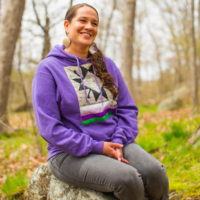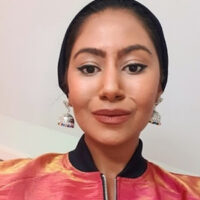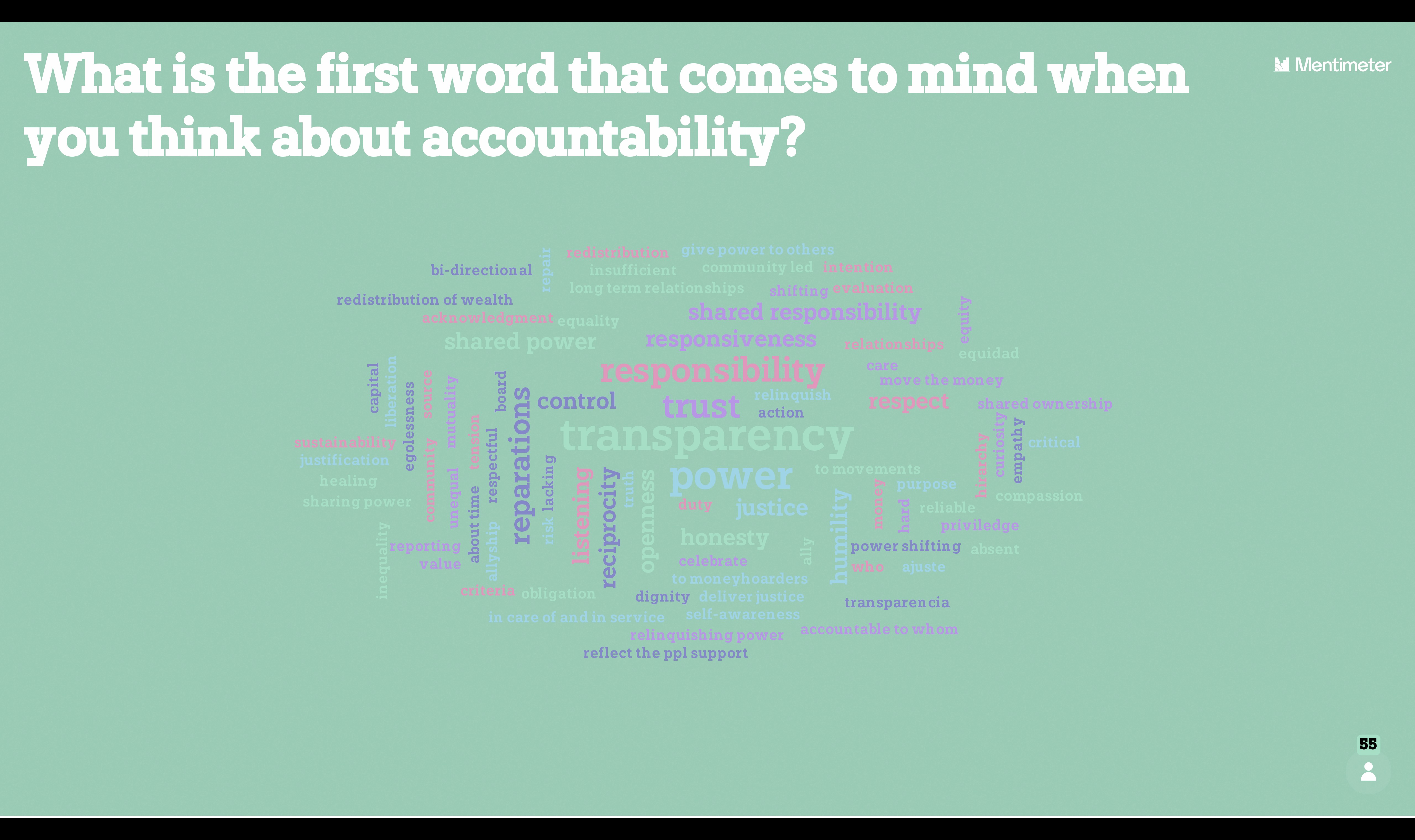Traditionally, accountability in funder/fundee relationships has flowed strongly in only one direction, with grantees having to prove their worth in several ways and funders being barely accountable.
In recent years, some funding bodies have made efforts to reduce reporting requirements and the most progressives ones have even begun to make bold claims about their own accountability to the communities that they fund. However, in reality it does not seem that any concrete change in power-dynamics is happening on the ground.
Throughout this webinar, we provided information to spark individual and collective reflection and action on how to begin changes that will foster accountability in the philanthropic sector, by listening to stories from different parts of the world and reflecting on how our accountability paradigm looks like now.
MODERATORS
 Kirsten Wyman‘s fight for the right to land, food, medicine and human dignity is completely tied to her identity and responsibility as a Nipmuc woman, mother, and daughter. As the Global Movements Program Manager with WhyHunger, Kristen supports social movement processes at the global level, in their path towards food sovereignty and liberation. She is also part of a collective called Eastern Woodlands Rematriation (EWR), a network of Indigenous folx restoring the foundation of sustainable foodways. Her work is deeply personal and motivated by the important roles of womxn as landholders, farmers, culture bearers, artisans and diplomats.
Kirsten Wyman‘s fight for the right to land, food, medicine and human dignity is completely tied to her identity and responsibility as a Nipmuc woman, mother, and daughter. As the Global Movements Program Manager with WhyHunger, Kristen supports social movement processes at the global level, in their path towards food sovereignty and liberation. She is also part of a collective called Eastern Woodlands Rematriation (EWR), a network of Indigenous folx restoring the foundation of sustainable foodways. Her work is deeply personal and motivated by the important roles of womxn as landholders, farmers, culture bearers, artisans and diplomats.
PANELISTS
 Allyne Andrade is Deputy Executive Director at the Brazil Human Rights Fund. Holds a PhD in Law from University of Sao. Brazil Human Rights Fund is a local fund created by activists to channel resources to social movements and advance philanthropy for social justice in the country. The foundation is, at the same time, a funder and grantee. Although most of its resources come from larger national and international foundations, Brazil Funds refuses to be understood as an “intermediary”. It considers itself as a strategic local actor able to build trust and more equal relationships among movements and funders.
Allyne Andrade is Deputy Executive Director at the Brazil Human Rights Fund. Holds a PhD in Law from University of Sao. Brazil Human Rights Fund is a local fund created by activists to channel resources to social movements and advance philanthropy for social justice in the country. The foundation is, at the same time, a funder and grantee. Although most of its resources come from larger national and international foundations, Brazil Funds refuses to be understood as an “intermediary”. It considers itself as a strategic local actor able to build trust and more equal relationships among movements and funders.
 Farzana Khan (she/her) is a writer, director, cultural producer and award-winning arts educator. She is the Executive Director and Co-founder of Healing Justice London (HJL) Her practice works on building community health, repair and self-transformation rooted in disability justice, survivor work and trauma-informed practice working with communities of colour and other marginalised and underrepresented groups. HJL cultivates public health provisions for collective liberation and dignifying lives made vulnerable. Farzana is the former creative and strategic director at Voices that Shake, bringing together young people, artists and campaigners to develop creative responses to social injustice. She ran this working at Platform London, a climate and social justice organisation working across arts, education, research and activism. Farzana’s recent curatorial practice/art includes launching the Black Cultural Activism Map with the Stuart Hall Foundation and ‘All Water Has Perfect Memory’, writing on climate and gender justice and generational trauma & memory.
Farzana Khan (she/her) is a writer, director, cultural producer and award-winning arts educator. She is the Executive Director and Co-founder of Healing Justice London (HJL) Her practice works on building community health, repair and self-transformation rooted in disability justice, survivor work and trauma-informed practice working with communities of colour and other marginalised and underrepresented groups. HJL cultivates public health provisions for collective liberation and dignifying lives made vulnerable. Farzana is the former creative and strategic director at Voices that Shake, bringing together young people, artists and campaigners to develop creative responses to social injustice. She ran this working at Platform London, a climate and social justice organisation working across arts, education, research and activism. Farzana’s recent curatorial practice/art includes launching the Black Cultural Activism Map with the Stuart Hall Foundation and ‘All Water Has Perfect Memory’, writing on climate and gender justice and generational trauma & memory.
 Kari Fulton is a staff person with the Climate Justice Alliance and serves as the Frontline Policy Coordinator, supporting and advancing the engagement of frontline voices within the Green New Deal ecosystem in the U.S. Kari’s work in the Climate Justice movement began as a youth and HBCU student organizer with the Environmental Justice and Climate Change initiative, a pioneering coalition in the United States Climate Justice movement. She brings over 14 years of experience with engagement, training, and organizing alongside student and community organizations to build strategies to improve public health, community empowerment, and environmental policies. Kari has served on the planning committees for local, federal, and global campaigns including Power Shift, the largest youth climate summits in the United States, and the People’s Climate March.
Kari Fulton is a staff person with the Climate Justice Alliance and serves as the Frontline Policy Coordinator, supporting and advancing the engagement of frontline voices within the Green New Deal ecosystem in the U.S. Kari’s work in the Climate Justice movement began as a youth and HBCU student organizer with the Environmental Justice and Climate Change initiative, a pioneering coalition in the United States Climate Justice movement. She brings over 14 years of experience with engagement, training, and organizing alongside student and community organizations to build strategies to improve public health, community empowerment, and environmental policies. Kari has served on the planning committees for local, federal, and global campaigns including Power Shift, the largest youth climate summits in the United States, and the People’s Climate March.
- Kristen Wyman from WhyHunger
- Jenny Oppenheirmer from Lankelly Chase
- Susan Edey from SHIFT Center for Social Transformation
- Ariel Brooks from Center for Economic Democracy
- Bridget Brehen from Grassroots Global Justice Alliance
- Lillian Tamale from CivSource Africa
- Pedro Lagatta from Fundo Brasil
- Mireille Posse from EMpower — The Emerging Markets Foundation
- United Frontline Table
- A People’s Orientation to a Regenerative Economy
- It Takes Roots to Challenge Philanthropy
- Just Transition Principles
- Just Transition
- Resourcing Racial Justice
- The Value of Lived Experience in Social Change
- WHO HAS GAINED? Moving from Extractive to Equitable Listening
- Lived Experience Leadership


Leave a Reply
You must be logged in to post a comment.